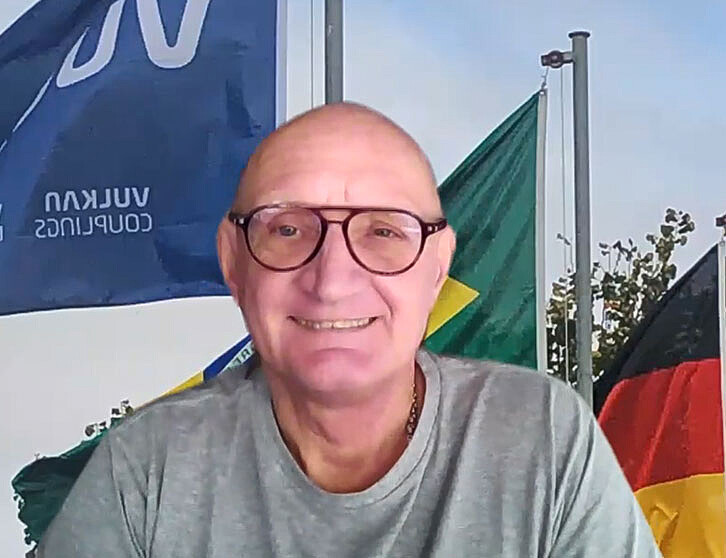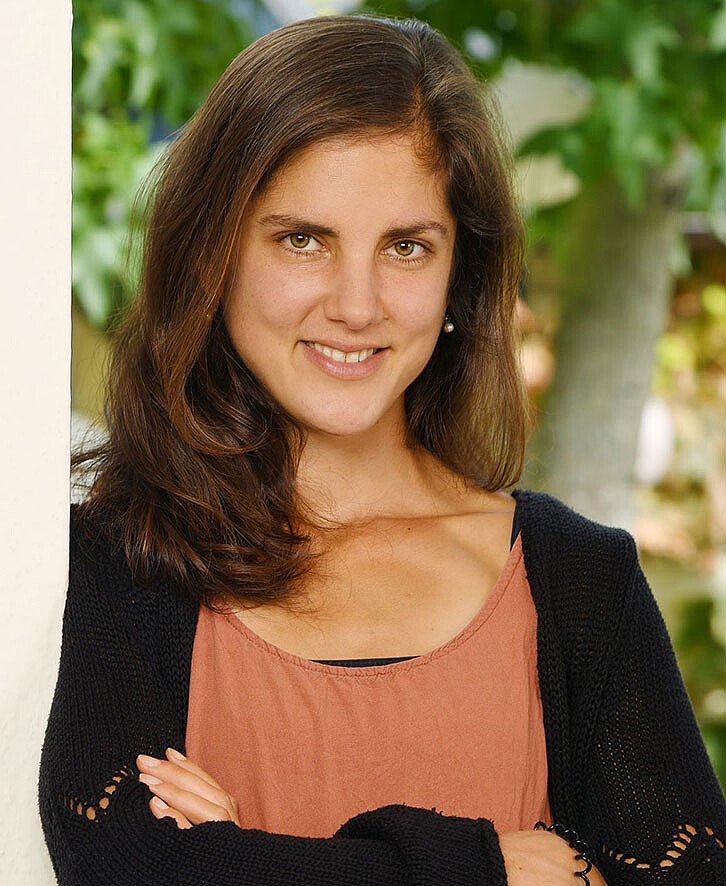Published on June 13, 2022
Shaping progress together

Under the motto "Together for Industry and Science", former KIT researchers, employees, and students volunteer in the KIT Industry Experts network. With their practical experience from their professional activities in industrial companies all over the world, they give something back through their commitment in the network for knowledge and technology transfer at KIT. The interlocking of scientific research and the wealth of experience of the Experts offers added value for all participants! We met two members of the KIT Industry Experts for an interview to learn more about their motivation and experiences in the network.

Maintain strong connection
As a long-standing member of the alumni and also of the specialized experts network, Klaus Hepp has been closely connected with KIT since his studies. He now follows the developments of his alma mater from Brazil. Most recently, he was a guest at the KIT campus in 2019 to learn about a technology in the field of electrical engineering and to sound out a potential cooperation - initiated by the KIT Industry Experts network.
- Name: Klaus Hepp
- Field of study / time at KIT: Study of chemical engineering from 1979 to 1984
- Position: Managing Director VULKAN do Brasil Ltda.
- Industry: Metal industry, Drive engineering, Plant engineering, Heavy industry
- Member of KIT Industry Experts since: November 2018
Mr. Hepp, you studied at KIT until 1984. Tell us briefly about your time at KIT.
Klaus Hepp: Looking back, that was a very interesting time. Before I came to Karlsruhe, I honestly had hardly any idea what student life at the university was like. The first weeks were a period of acclimatization to get used to the workload of everyday study. I gained a lot of experience in the pre-degree phase that has shaped me to this day. I also had doubts at times as to whether the subject was right for me. But an experience abroad in South Africa encouraged me to stick with it. I was there for three months and got a taste of the working world of an engineer in an industrial company. With this motivation, I then successfully completed my diploma in Karlsruhe in a very short time. According to the motto: "All's well that ends well".
After graduation, both paths were open to me: Either continue working in research or take a job in industry. However, partly because of my South African experience, I had a great urge to get to work quickly in the job, in industry and, if possible, internationally. In my first job, I also met some other KIT members right away, which surprised me very positively. As a young professional, this was of course also a great start from a social point of view. In retrospect, I was very, very satisfied with all my experiences at KIT and in Karlsruhe. It's a tough course of study, but it prepares you very well for your career because you learn the virtues of disciplined, concentrated work.
KIT Industry Expert means honorary office. Why is it important for you to do voluntary work for KIT?
Klaus Hepp: I have noticed that the German university landscape has been developing rapidly in recent years; in the sense of opening up to society and industry. In my time as a student, these were still separate worlds that had relatively little connection. Networking has now become a basic principle. It's also important for the university to actively use funding opportunities, such as collaborations with industry. And it is important for society to recognize that outstanding graduates can subsequently take on significant tasks in technology and science. Therefore, KIT as a university should be closely interlinked with society, politics, and industry.
Why am I involved here? A strong argument is gratitude. I am very grateful for the wonderful time and the great education I was able to obtain at KIT. This goes hand in hand with the fact that there cannot only be givers and takers, but all those who take should also give something back. Then it works. And in this sense, I think that if I have been able to have a great professional career, it is also thanks to the good training at KIT.
I started a new development department at Vulkan seven years ago. As a smaller company with rather limited resources, we quickly realized that we were dependent on input from outside - in terms of new technologies and further development. So it was obvious to pick up where I myself have my roots. As a result, I sought contact with KIT. For us as an international company, with a German parent company, research facilities are a resource that is relatively easy to tap. Hence the ongoing connection to Karlsruhe, coupled with the pride of being able to show my employees my origins here.
How have you been involved as a member since joining the network?
Klaus Hepp: When the first request came from the expert network a few years ago, I was immediately enthusiastic. I immediately asked myself how I could make a contribution and, as a curious person, I signed up straight away. Without any great expectations. Just to see what was coming. It didn't take long before I was invited to the first events. As an expert, you could give your opinion on specific technologies in an online survey.
One of the topics was of great interest to us, and I presented it to the development team. Then, without further ado, we contacted the responsible innovation manager via the network channels and organized an on-site appointment at KIT with the developer of the technology. I made the trip to Germany with my team. This exchange resulted in a project that we are still working on together today: an initial study gave rise to a pilot series of the product, which we are currently testing. It looks very good so far, so that we may replace a product in our portfolio with the newly developed product next year. This will enable us to make a technological leap that the competition has not yet mastered. At the same time, we can also save costs with the new product. We are very satisfied. However, a completely different aspect was important to me beyond that. I deliberately wanted to involve my Brazilian team in the project so that they could get to know how to work with German research and development facilities. In this defined development project, they were to gain experience and handle everything independently.
How does the exchange in the network enrich you? What do you take away for yourself?
Klaus Hepp: The nice thing is that something can develop from every new contact made through the Experts network. Not always immediately, but sometimes only later. For example, a former KIT innovation manager who started his own business now works for us as an external technology scout. We were able to build directly on a good basis. He is our "extended arm" to Germany from Brazil to systematically observe the research and development landscape there and to support us in initiating projects. From there, we have already benefited from the network.
Wherever I can, I participate in networking events for alumni and provide feedback in the technology surveys. I think the idea of bringing industry-ready technologies with application scenarios to the experts for critical or constructive scrutiny is great. It's just that they are often very specialized topics, so I don't always have a connection to the subject. But when I could contribute with my know-how, I commented on the surveys. I think the experts would also be interested in broader topics: For example, which topics are currently in focus at KIT? What are the institutes dealing with? And where would there be points of contact with industry?
What do you wish for the network or from the network?
Klaus Hepp: After many formats took place digitally during the pandemic and presence events were paused, the challenge for the network will be how a hybrid model can look. Will there be pure presence again? What do future formats look like? I would expect that new opportunities will be offered in the network to create an attraction for new and more international Experts.
Right now, the network is still focused on the university, on the research area, in order to bring in the experiences of the alumni here. I would still like to see more contributions from alumni from industry in other areas of society. I think there's room for even more knowledge transfer. So the open question is how to bring the many areas together.
Another very personal wish would be for KIT to increase its presence in South America or, more specifically, in Brazil. Many German universities are active here, and unfortunately my alma mater is less visible in comparison. This is a pity, because the Brazilians are very interested in German engineering and the KIT.

Forging new bonds
Janina Costard recently joined the Experts network as a new member. During this time, she has primarily become familiar with the digital offerings in the Experts network, as face-to-face meetings and events in persona were almost impossible due to the Corona pandemic. How she came to the network and what she expects from the membership, Ms. Costard reveals in the interview.
- Name: Janina Costard
- Field of study / time at KIT: Study period incl. doctorate: 2008 to 2018, electrical engineering
- Position: Development engineer at Schott AG
- Industry: Materials technology, special glass and ceramics
- Member of KIT Industry Experts since: December 2021
You are an alumnus of KIT, Ms. Costard. How do you look back on your time at KIT?
Janina Costard: I studied electrical engineering at KIT and have very positive memories of my student days. I made many friends who are still among my best friends today. The studies themselves were very flexible, so that you could set your own priorities in terms of content. At the same time, the basics were taught in a very intensive and well-founded manner. Afterwards, I did my doctorate in the field of lithium-ion batteries at KIT. This time was also very exciting - through many industrial projects and international conferences, I was able to gain valuable experience here.
How did you get involved in the KIT Industry Experts network?
Janina Costard: You could almost say by "hearsay". In my network on LinkedIn, I discovered that acquaintances of mine were already members of the Experts. That made me curious. I then looked into it more closely and finally applied for membership. I have been part of the network since last year and am still discovering what offers and opportunities are available.
What convinced you to join the volunteer network?
Janina Costard: Above all, my interest in KIT research was decisive for me. Through the regular newsletters and events in the network, I receive news from research directly and, in addition, I also have good contacts with young scientists.
Why are you interested in supporting transfer at KIT?
Janina Costard: I consider KIT to be a very good science institute with innovative research. However, as is often the case with university research, the application and direct reference to industrial use can still be expanded. This gap can only be closed by an intensive exchange between both worlds, as the network strives for and promotes.
What do you hope to gain from being a member of the network?
Janina Costard: I currently work in research at Schott AG. Thematically as well as in terms of content, current research trends are therefore very relevant to me here for several reasons. The drive for progress and optimization goes directly hand in hand with this. I am therefore particularly interested in KIT technologies and findings in the following areas:
- Material development with possible use of our products
- Developments in the field of green energy supply, CO2 reduction, energy saving
- Developments in the field of digitalization, Industry 4.0, and artificial intelligence
- material characterization
For me, the network is a good starting point for this. The exchange with talented young scientists is also an added value. Finally, attracting potential new employees for Schott is also a form of transfer via heads.
We would like to thank Ms. Costard and Mr. Hepp for the interview and wish them continued lively exchange in the network!

comments about this article
No Comments